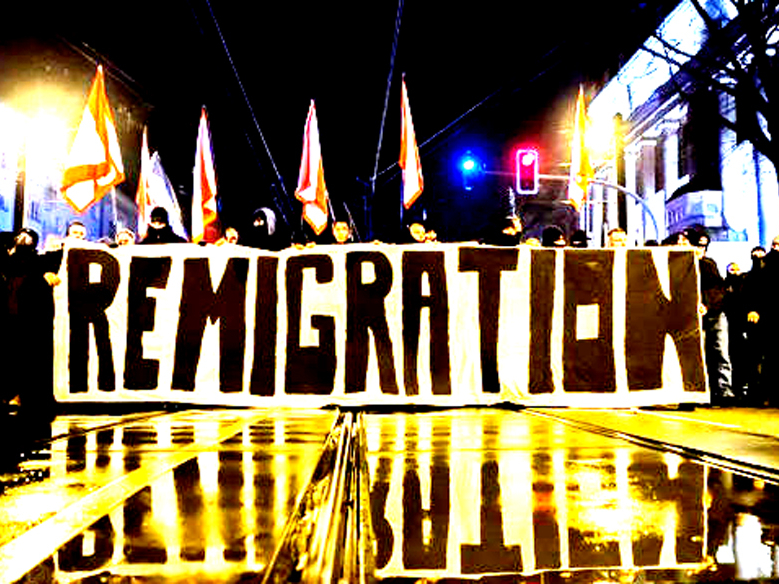We cannot mince words: events like those in Magdeburg — an inevitable consequence of decades of flooding our country with foreigners — serve a purpose. They raise the temperature in the pressure cooker and bring clarity to key issues: identifying who bears responsibility and must be held accountable. The systemic failure in immigration policy did not start with the current coalition, yet now knife attacks and rapes have become a routine part of daily life. That German authorities deliberately sabotaged the extradition of the Saudi psychopath — who faced trial in his home country — is merely the intolerable cherry on top of the current case. The culprits have names and hold offices.
The public outrage that greeted Scholz,1 Faeser,2 and their cohort in Magdeburg is among the few encouraging developments of recent days. Let us hope this anger does not dissipate as usual. In the election campaign starting next year, the Magdeburg incident could act as an accelerant. One must have no hesitation in “leveraging” it — it does so naturally.
This incident provides an opportunity to recall the fundamental nature of our situation and the primary tasks arising from it, without getting bogged down in minutiae or false distinctions:
Our Current Situation
We are living in a mixed society created by decades of mass influxes of foreigners, with their inevitable consequences — police statistics, for which even merely citing the raw data can now result in legal repercussions, speak volumes and render further discussion superfluous. The central issue for our survival as a people is the protection of our remaining ethnic homogeneity and the dismantling of the migration society. This latter condition was systematically and deliberately brought about by Germany’s traditional parties, across all party lines. This must never be forgotten. The fact that the Federal Constitutional Court3 now denounces the ethnic concept of nationhood as “hostile to the constitution” (what “constitution,” one might ask?4) is irrelevant. The German people must survive; the Federal Constitutional Court need not. Its rulings, steeped in leftist ideology, are not the ultimate standard.
Our Central Task: Remigration
The task of “remigration” is not new, even if it has been popularized by Martin Sellner’s valuable book. Questions of who, how many, and within what timeframe are details. Agreement on the primary task of remigration must be achieved. Those who do not support it must be sidelined.
A particularly encouraging aspect of recent days is the swift and extraordinarily effective mobilization within a very short time. By all accounts, this success is primarily attributable to the Freie Sachsen (“Free Saxons”) and the party Die Heimat (“The Homeland,” formerly NPD), which brought thousands onto the streets within a single day. This was not only a logistical feat but also played a crucial role in ensuring that the regime’s representatives in Magdeburg faced significant resistance.
The contribution of the AfD remains unclear at this point. While they have called for a special session of the Bundestag (German federal parliament), the party, with 22 seats in Magdeburg’s state parliament and 94 in the Bundestag, has substantial resources that could add weight to the protest — if not already, then potentially still to come. If the AfD indeed wishes to present itself as the “Alternative for Germany,” now is the time to show leadership and solidify resistance.
What Germany does not need: childish vigils with candles and hollow phrases of mourning. Such gestures are also inappropriate because the supposed “innocents” who are often victims of such incidents have, through their voting behavior, contributed to this disaster over many years. What is needed now is clarity regarding the tasks and priorities ahead, persistence — and the further polarization of a society already paralyzed by its internal divisions. Meaningful change cannot be achieved with lukewarm moderates, leftists, or ideologues; any debate with such individuals is pointless. The time for parliamentary solutions to this crisis has long passed. Each new day reveals more failures of the regime, and the turbulence ahead will present unexpected opportunities. Let us seize them!
(Translated from the German)
Footnotes
Trans. note: Olaf Scholz is the Chancellor of Germany.
Trans. note: Nancy Faeser, as Federal Minister of the Interior, epitomizes the disastrous policies of the Scholz regime, championing open borders and mass immigration while willfully ignoring the chaos and insecurity they bring to German streets. Under the guise of combating “right-wing extremism,” she has weaponized her office to criminalize dissent, silence nationalist voices, and impose ideological conformity, all while violent crimes and social unrest linked to unchecked migration spiral out of control. Her priorities are clear: protect the globalist agenda at all costs, even if it means sacrificing the safety, sovereignty, and cultural identity of the German people. Faeser’s tenure is a stark warning of how far the state is willing to go to suppress opposition and entrench its anti-national agenda.
Trans. note: The Federal Constitutional Court is a tool of leftist ideology that undermines national identity and sovereignty, enables state surveillance, stifles dissent, and criminalizes speech that challenges the prevailing globalist agenda.
Trans. note: The question “what constitution?” highlights the critique that Germany’s Basic Law (Grundgesetz), designed as a provisional framework, was never legitimized by a popular referendum and thus lacks the true sovereignty of a constitution. It has been co-opted by leftist ideology, diverging from the foundational principles needed to safeguard the nation’s identity.





